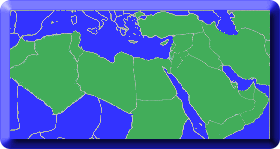
Topics in Middle Eastern and North African Economies
Document Type
Article
Publication Date
5-1-2018
Journal Title
Topics in Middle Eastern and North African Economies
Volume
20
Issue
1
Publisher
Middle East Economic Association and Loyola University Chicago
Abstract
Following the Arab spring, Arabs today are passing through a dangerous time of tough and difficult choices that bear far-reaching consequences. This paper argues that there was a significant economic element to the Arab Spring, which relies mainly on the Arab economies’ failure to achieve sustained inclusive growth. The purpose of the study is to understand whether the economic growth of the region has been unsatisfactory due to Arab economies lagging in terms of reforms, or because of the reform programs themselves. In this paper, the empirical model analyses the linkages between economic reforms, human capital, physical infrastructure, and governance and growth for a panel of 87 countries, including 20 from the Arab region over the period 1995 to 2014. The analysis finds that macroeconomic and external stability are primary variables for the reform development and the growth prospects of the developing countries. The efficiency of structural reforms depends on success in stabilising the economy. The most striking result from the baseline model is that the coefficient of governance is significant and positively determines growth in the whole sample, while it is harmful in Arab sample. Additionally, the result tends to show that the resource curse in the Arab region is largely an “institutional curse”, even though it has several macroeconomic manifestations. The conclusion of the study confirms that reform is simultaneously political, social and economic. Economic reform should not be seen in a vacuum, in isolation from the political and social choices that society makes.
ISSN
2334-282X
Recommended Citation
ABDELBARY, Islam and BENHIN, James, "What Makes Arab Economies Fail? An Assessment of the Complementary Relationship between Socioeconomic Reforms and Institutions". Topics in Middle Eastern and North African Economies, electronic journal, 20, 1, Middle East Economic Association and Loyola University Chicago, 2018, http://www.luc.edu/orgs/meea/
Creative Commons License

This work is licensed under a Creative Commons Attribution-Noncommercial-No Derivative Works 3.0 License.
Copyright Statement
© 2018 The Authors



Comments
Presentation of the articles in the Topics in Middle Eastern and North African Economies was made possible by a limited license granted to Loyola University Chicago and Middle East Economics Association from the authors who have retained all copyrights in the articles.